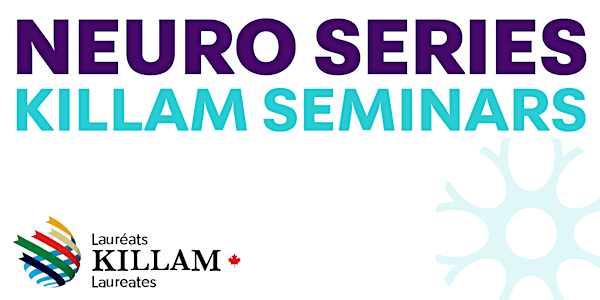
The Killam Seminar Series
Identifying the Early Events in ALS Pathogenesis in MATR3 S85C KI Mice
Date and time
Location
De Grandpre Communications Centre
3801 Rue University Montréal, QC H3A 2B4 CanadaAbout this event
- 1 hour
Supported by the generosity of the Killam Trusts, the MNI's Killam Seminar Series invites outstanding guest speakers whose research is of interest to the scientific community at the MNI and McGill University.
Talk Title: Identifying the Early Events in ALS Pathogenesis in MATR3 S85C KI Mice
Jeehye Park
Senior Scientist, SickKids Research Institute, Associate Professor, Department of Molecular Genetics, University of Toronto, Canada
Abstract: Amyotrophic lateral sclerosis (ALS) is a devastating neurodegenerative disease that leads to progressive decline in motor impairment, muscle atrophy and paralysis. ALS studies provided significant insights into the disease process, which may involve various molecular pathways and cellular dysfunction that contribute to neurodegeneration. However, we still lack knowledge of how ALS starts to occur and develop, particularly the mechanism underlying the early phase of the disease process. Understanding the early disease stage rather than the late disease stage would enhance our chance of developing effective treatments that could stop or reverse the disease course. To identify the disease-initiating events leading to degeneration, we use our established ALS mouse model, MATR3 S85C knock-in (KI) mice. A missense mutation S85C is the most frequently identified ALS-linked mutation in MATR3, which encodes an RNA binding protein involved in RNA splicing. This newly established ALS model closely mimics the human disease genotype and phenotype, offering enhanced disease relevance compared to existing models in the ALS field and providing an unprecedented opportunity to study the early-stage development and progression of ALS. Using this mouse model, we pursue to 1) determine the early disease events in the disease process and 2) determine how the ALS-linked mutation alters MATR3 function and properties to cause neurodegeneration. Our findings will uncover the early disease process, which may change the view of how ALS develop and progress. Defining the key early events will facilitate the development of early prevention and intervention strategies for ALS.
Speaker Bio: Jeehye Park is a Senior Scientist in the Genetics and Genome Biology Program at SickKids Research Institute and an Associate Professor in the Department of Molecular Genetics at University of Toronto. She is a Canada Research Chair (Tier 2) in Molecular Genetics & Neurodegenerative Diseases. Jeehye Park received PhD from Dr. Jongkyeong Chung lab at Korea Advanced Institute of Science and Technology (South Korea), where she studied the molecular mechanism of Parkinson’s disease. She completed postdoctoral training in Dr. Huda Zoghbi lab at Baylor College of Medicine (Houston, USA) and studied spinocerebellar ataxia type 1.
Park lab currently focuses on studying the molecular mechanism of a neurodegenerative disease, amyotrophic lateral sclerosis (ALS), utilizing a multi-disciplinary approach including biochemistry, molecular cell biology and fly and mouse genetics to ultimately improve understanding of the disease and develop therapeutic strategies. Recently, Park lab established an ALS model, MATR3 S85C knock-in mice, that closely mimics the human disease genotype and phenotype, offering enhanced disease relevance compared to existing models in the ALS field and providing an unprecedented opportunity to study the early-stage development and progression of ALS. Using this mouse model, they will 1) determine the early disease events in the disease process and 2) determine how the ALS-linked mutation alters MATR3 function and properties to cause neurodegeneration. Their findings will uncover the early disease process, which may change the view of how ALS develop and progress. Defining the key early events will facilitate the development of early prevention and intervention strategies for ALS.